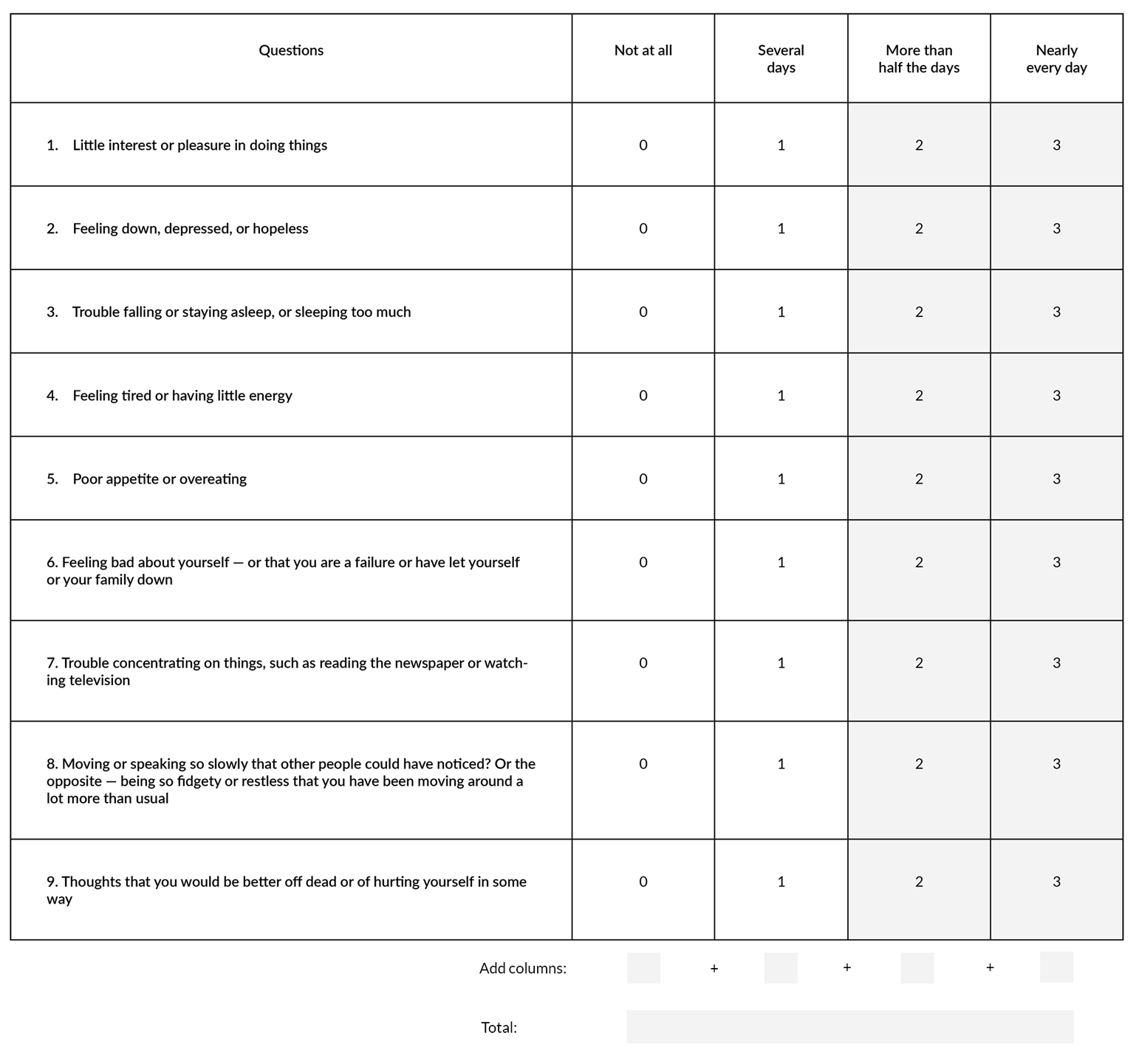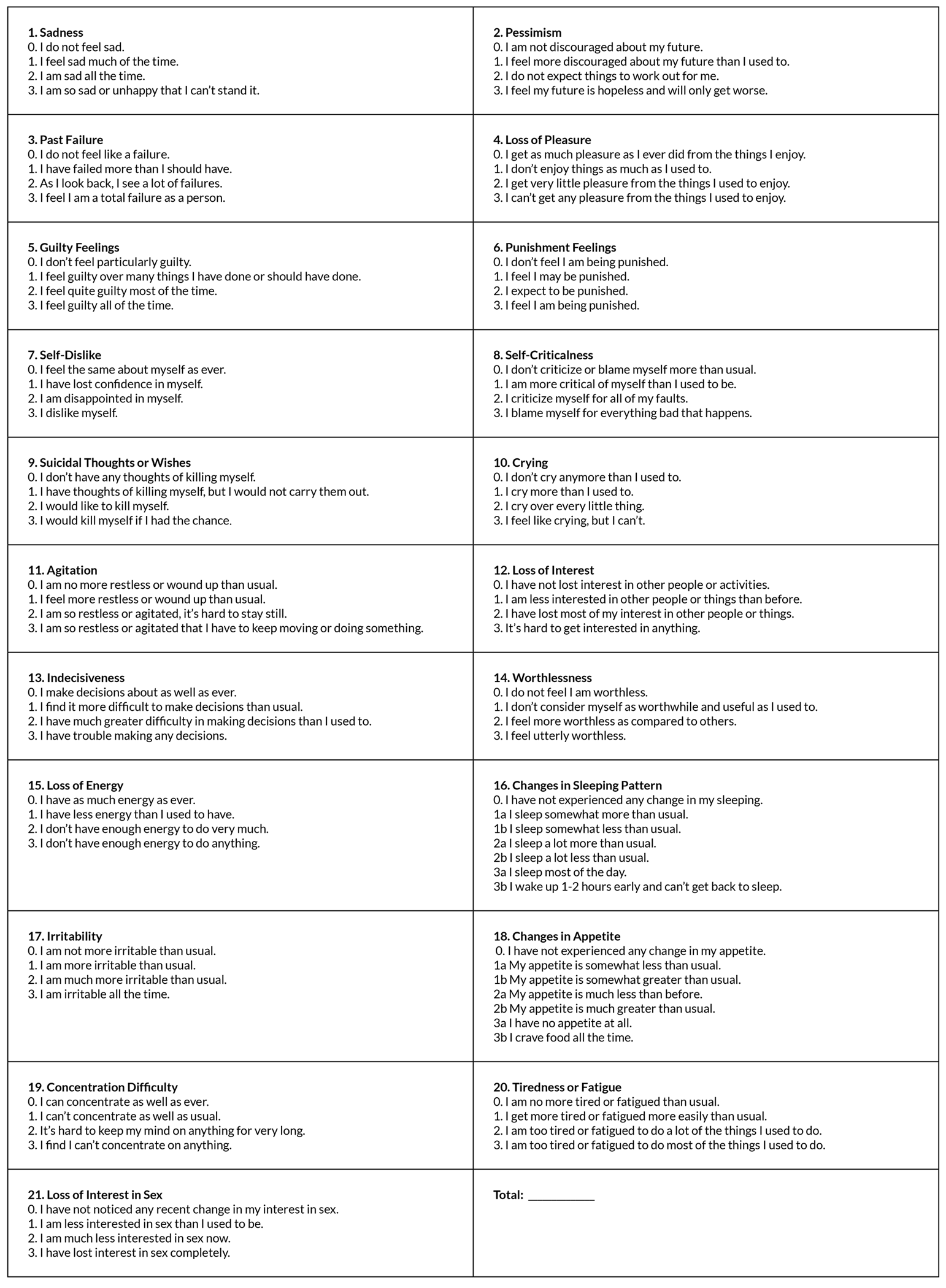The Depression Test
February 18, 2021
It seems like it should be obvious to any individual when they are depressed. In reality, depression can rob an individual of the ability to accurately appreciate their own condition. Trying to differentiate a “bump in the road” from “the tip of iceberg” when it comes to depression is not always as easy as it seems.
Many depression symptoms can take a form you might not expect. Symptoms impacting sleep, appetite, sluggishness of speech or movement could all have their root in major depression. Constant thoughts about one’s health or physical ailments could also be signs of major depression.
Depression rating scales have been developed by clinicians and researchers to better describe the severity of depression an individual is suffering. Some of the more popular scales include the Patient Health Questionnaire (PHQ-9), the Beck Depression Inventory, the Hamilton Depression Rating Scale (HAM-D) and Montgomery-Asberg Depression Rating Scale (MADRS).
Take Our Anxiety and Depression Quiz
Below are two samples of these scales:
Patient Health Questionnaire (PHQ-9)
PHQ-9 Scoring Instructions
Depression Severity Score: Total the values for each response to obtain the severity score.
A score of 5-9 is positive for Mild Depression.
A score of 10-14 is positive or Moderate Depression.
A score of 15 or more is positive for Severe Depression.
Beck Depression Inventory
Instructions: This questionnaire consists of 21 groups of statements. Please read each group of statements carefully. And then pick out the one statement in each group that best describes the way you have been feeling during the past two weeks, including today.
Beck Scoring:
1-10____________________These ups and downs are considered normal
11-16___________________ Mild mood disturbance
17-20___________________Borderline clinical depression
21-30___________________Moderate depression
31-40___________________Severe depression
over 40_________________ Extreme depression
Fortunately, there are many treatments available for depression. If you are struggling with depression and have failed traditional depression treatments, consider contacting us at MD Infusions for a free consultation to see if Ketamine Infusion Therapy is right for you.
Disclaimer: If you or your loved one is experiencing a crisis now, please call the National Suicide Prevention Lifeline at 800-273-8255 or call 911.

